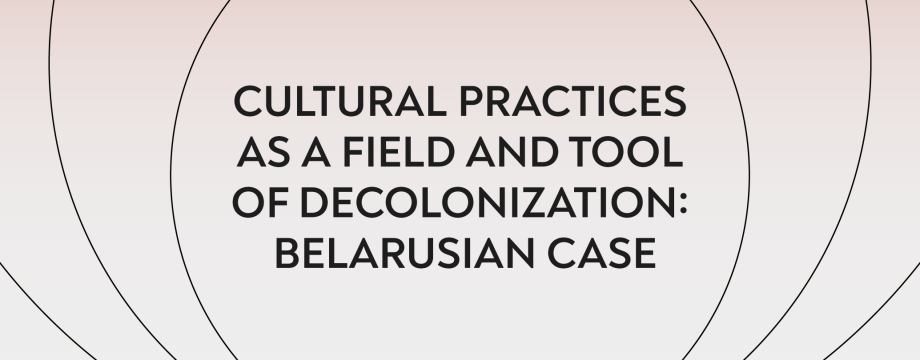
Framework
Belarus is a country deeply affected by the colonial policies of its neighbors. At the beginning of the Belarusian project, colonization (Polonization and Russification) was identified as the main factor that influenced and continues to influence Belarusian identity. At the same time, at the beginning of the 20th century, ways of moving away from the cultural dominance of strong neighbors began to be proposed.
The Belarusian situation began to be viewed as postcolonial in the mid-1990s. Back then, models of reasoning about the future were seen as the coexistence and interplay of postcommunist and postmodern, postcolonial and post-imperial forms, their hybridization. Everything changed radically from 2008–2014. Russian neo-imperialism, aggression, and violence against neighbors, and then a full-scale war aggression towards Ukraine called into question the possibility of such a future. It became clear that the aggression and violence of neo-imperialism are not only a geopolitical approach, but the characteristics of culture, thinking, and identity as well.
Therefore, the situation in which Belarusians live today in the country and abroad is considered decolonial. Decolonization of post-imperial space is seen as the main trend and basic task. Democracy and peaceful coexistence are impossible without decolonizing social and political institutions, and cultural and social practices. And first of all, decolonization of thinking, and identity.
In 2023, the Belarusian Council for Culture, with the support of the New Democracy Fund and in cooperation with partners, held a series of seminars to discuss decolonial practices present in countries that, like Belarus, are forced to get rid of Russian influence. A collective study is one of the results of this work. It aims to study the transformation of the basic messages and narratives of the Belarusian cultural field in the context of the political crisis and Russia’s aggressive policy.
The texts on which the authors worked can be divided into two blocks: the large article aimed to renew the Belarusian situation in general, and short essays devoted to individual aspects of philosophical thinking, and theatrical criticism through the prism of decolonial knowledge.
We are sure that the researchers’ observations, the conclusions they reached, and recommendations for further activities of the entire cultural and civil society will help Belarusians quickly get rid of the phantom pains of separation from the empire and come to understand the importance of their historical path as a nation.
To the reader
The main block of the collective study is published in open access (in PDF format). For security reasons, we do not mention the authors’ names.
If you’d like to get all the essays created by the researchers during the project, please email us at info@byculture.org.


